Community Standards
All members of the Middlebury Community are expected to uphold our shared community standards:
- Cultivating respect and responsibility for self, others, and our shared environment.
- Encouraging personal and intellectual courage and growth.
- Manifesting integrity and honesty in all decisions and actions.
- Promoting healthy, safe, and balanced lifestyles.
- Fostering a diverse and inclusive community committed to civility, open-mindedness, and finding common ground.
When student behaviors fall short these expectations in ways that rise to the level of alleged policy violations, the Office of Community Standards addresses the concerns through the College’s disciplinary processes, educational responses, and when appropriate, disciplinary sanctions.
Unique Conduct Incidents Addressed in the Office of Community Standards
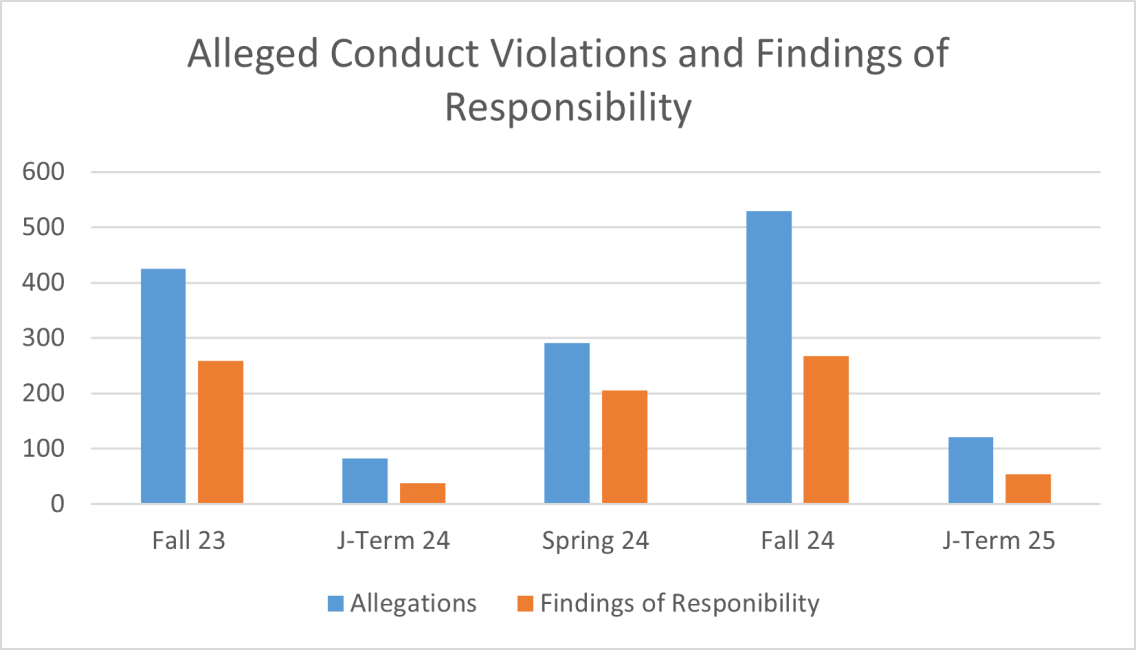
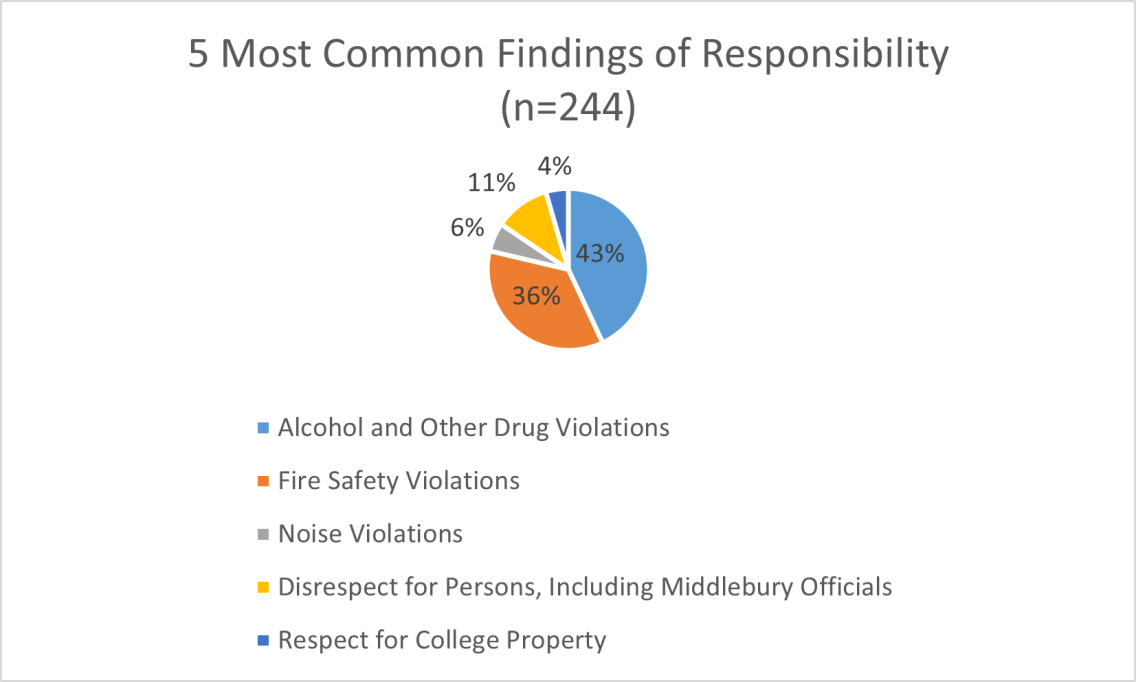
Educational Responses and Disciplinary Sanctions
Educational Responses: Educational responses such group classes, online courses, individual meetings, reflective papers, and referrals to support resources are all forms of educational responses to policy violations. Such responses are most commonly, though not exclusively applied in response to alcohol and other drug policy violations.
Disciplinary Sanctions: Disciplinary sanctions include fines or restitution, written warnings and reprimands, probation, letters of official college discipline, suspension and expulsion.
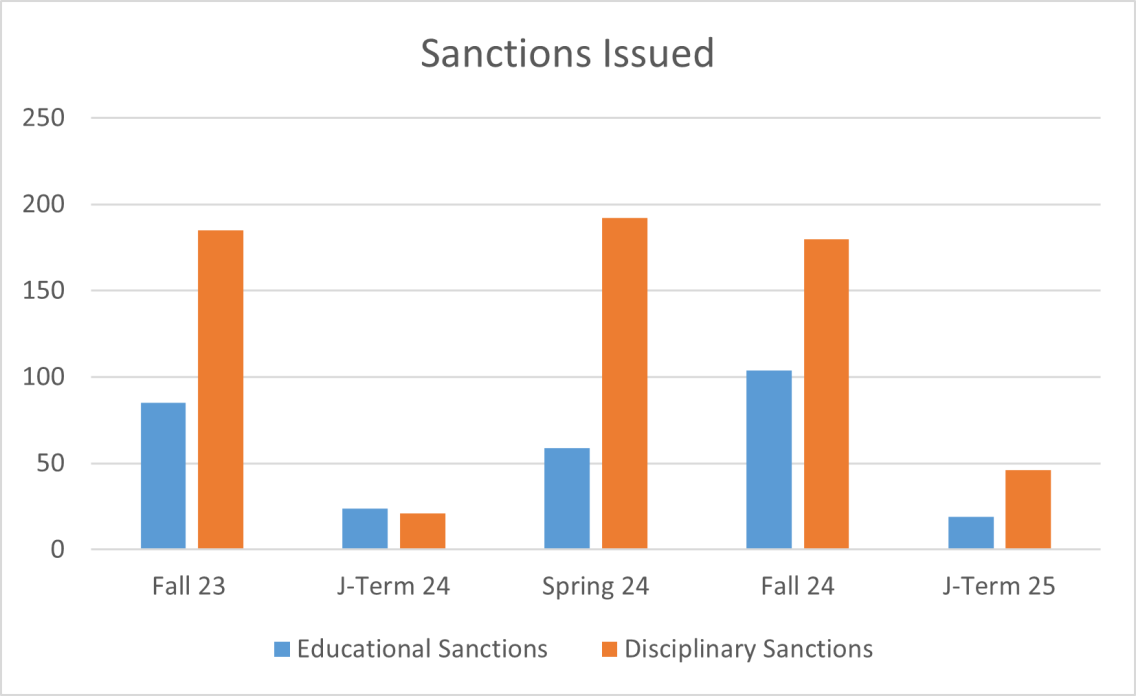
Academic Integrity Cases
Academic integrity cases are tracked separately from other conduct cases. Note that depending on circumstances, multiple sanctions are sometimes issued in a single case.
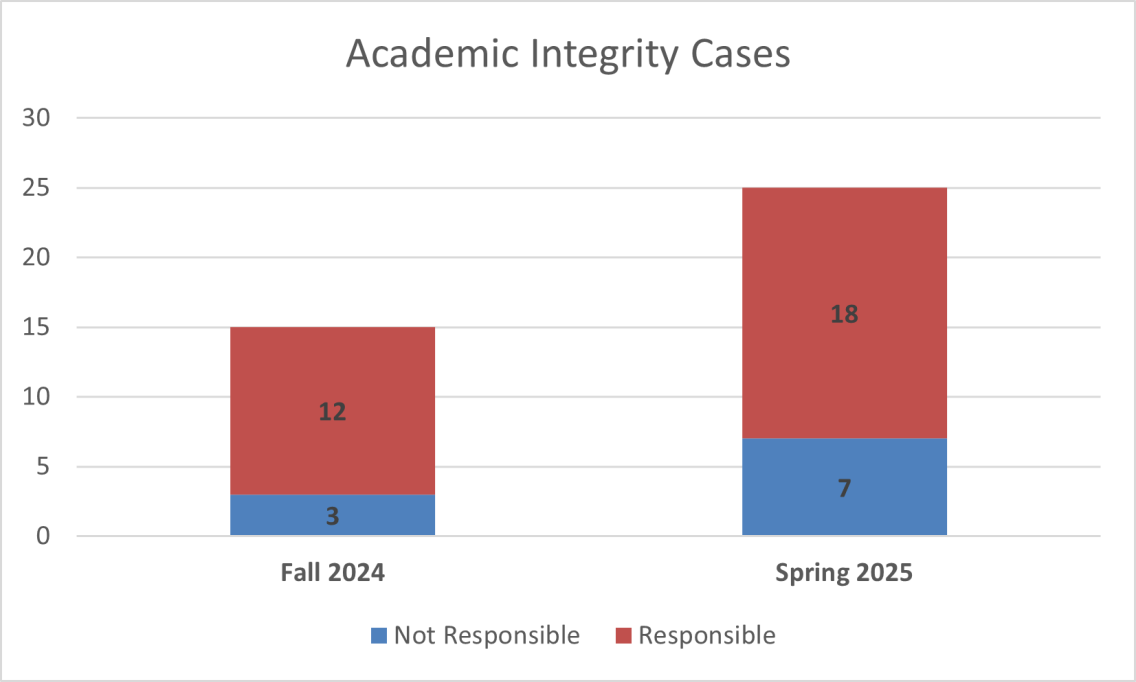
Off-Campus Behavioral Concerns
In a typical year, 100-120 students live off campus in the town of Middlebury. These students remain subject to our community standards and policies. Because of the potential impact on neighbors, we track behavioral concerns among these students separately.
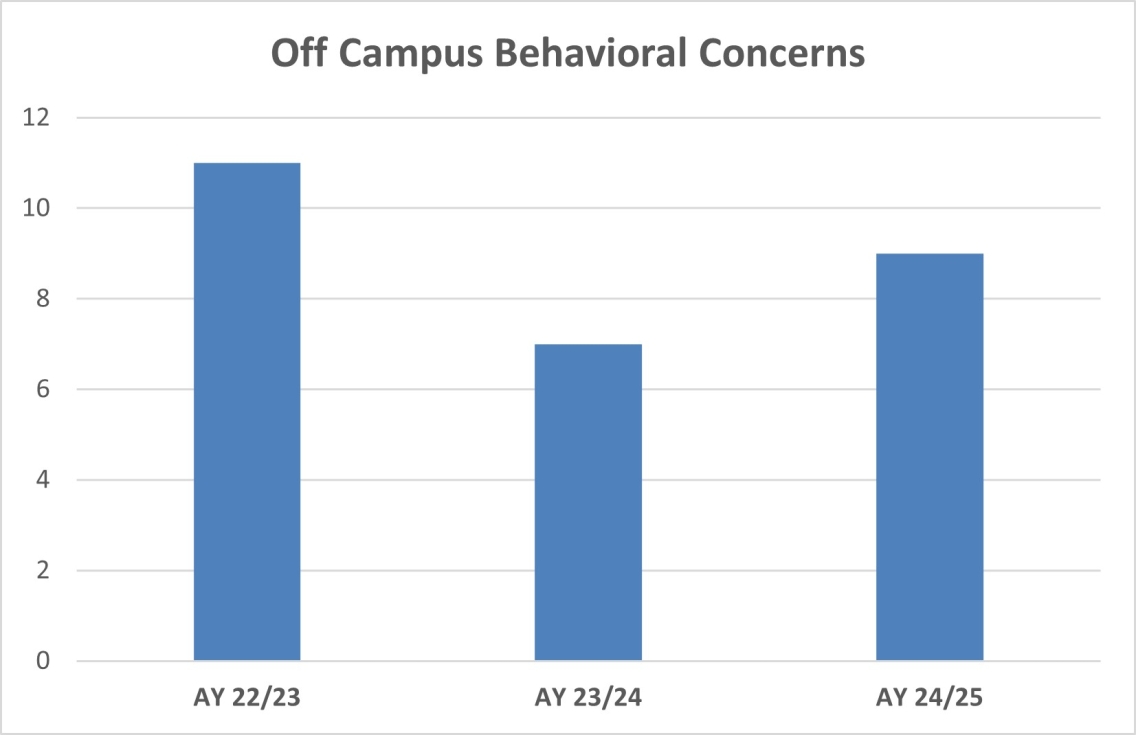
Highlight: Decreased Recidivism
In recent years, the Office of Community Standards has partnered with the health educators from the Center for Health and Wellness in designing and assigning educational responses to violations of alcohol and other drug policies. Since 2018, the recidivism rate for alcohol and other drug policies violations has dropped from 1 in 4 to 1 on 10.

